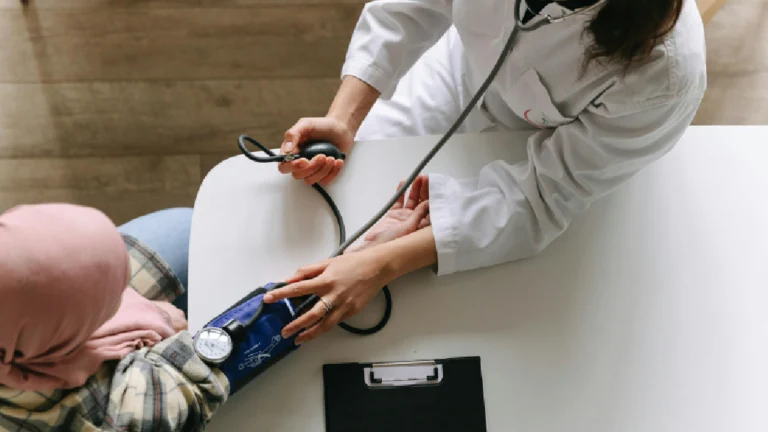Understanding Food Poisoning
What Is Food Poisoning?
Food poisoning is what happens when your digestive system gets hit with harmful bacteria, viruses, parasites, or toxins from contaminated food or drinks. It’s more common than you think, and it can sneak up on you after a seemingly innocent meal.
Common Causes of Food Poisoning
The main offenders behind food poisoning include:
- Bacteria: Salmonella, E. coli, Listeria, and Campylobacter
- Viruses: Norovirus and Hepatitis A
- Parasites: Giardia and Toxoplasma
- Toxins: Produced by bacteria like Staphylococcus aureus or from spoiled seafood
These pathogens often show up in undercooked meats, unwashed produce, expired dairy, and food left out too long at unsafe temperatures.
When Do Symptoms Start?
The Typical Timeframe
Food poisoning symptoms can appear in as little as 30 minutes or as late as 3 days (or longer) after eating contaminated food. That window can make it tough to pinpoint what caused it.
Why It Varies
Type of Pathogen
Each pathogen has its own “incubation period”—the time between eating the bad food and feeling the symptoms. For example:
- Staph aureus: 30 minutes to 6 hours
- E. coli: 1 to 8 days
- Listeria: 1 to 4 weeks (yes, that long!)
Your Immune System
Your immune system’s strength plays a big role. Healthy adults might fight off mild symptoms, while children, pregnant women, and older adults may feel the effects faster and more severely.
Amount of Contaminated Food Eaten
It also depends on how much of the contaminated item you consumed. A tiny nibble might lead to mild symptoms, while a full meal of undercooked meat could bring on a full-blown bout of illness.
Common Symptoms You Might Notice
Early Warning Signs
When your stomach’s sounding the alarm, you might experience:
- Nausea
- Abdominal cramps
- Vomiting
- Diarrhea
These usually show up first and can escalate quickly.
Severe Symptoms You Shouldn’t Ignore
Some signs mean it’s time to seek medical attention:
- Fever over 101.5°F (38.6°C)
- Bloody diarrhea
- Persistent vomiting
- Signs of dehydration: dry mouth, dark urine, or dizziness
Timeline of Food Poisoning Symptoms
Understanding the timeline helps figure out what you’re dealing with. Here’s a general breakdown:
1–6 Hours After Eating
If you’re hit with nausea and vomiting within a few hours, the likely culprits are:
- Staphylococcus aureus
- Bacillus cereus (found in rice, by the way)
Symptoms hit hard and fast.
6–24 Hours After Eating
This window often points to:
- Clostridium perfringens, which causes intense cramping and watery diarrhea
- Salmonella, especially if paired with a fever
1–3 Days After Eating
Some pathogens take longer to show their hand. Common ones include:
- E. coli
- Campylobacter
You’ll likely experience stomach cramps, diarrhea (possibly bloody), and fatigue.
When Should You See a Doctor?
Warning Signs That Require Medical Help
If you notice any of the following, don’t wait it out:
- Vomiting that won’t stop
- Diarrhea lasting more than 3 days
- Blood in vomit or stool
- Signs of dehydration
- High, persistent fever
What NextGen Primary Care Doctor Walk-in Clinic & Urgent Care Can Do for You
When symptoms go from annoying to alarming, head over to NextGen Primary Care Doctor Walk-in Clinic & Urgent Care. Our team offers fast, walk-in care with diagnostics and treatment options for foodborne illness—no appointment necessary. From IV hydration to lab testing, we’ve got your back.
How Long Do Symptoms Last?
Mild Cases vs Severe Cases
For most healthy adults, mild food poisoning symptoms last between 24 to 72 hours. But if the infection is severe or caused by bacteria like E. coli O157, symptoms can drag on for a week or more.
Chronic Aftereffects
In rare cases, food poisoning can leave long-term issues like:
- Kidney failure (hemolytic uremic syndrome)
- Irritable bowel syndrome
- Chronic joint pain (reactive arthritis)
If symptoms linger past a week, see a doctor.
How Long Does It Take to Feel Better After Food Poisoning?
Recovering from food poisoning isn’t just about waiting for the vomiting and diarrhea to stop. Your body needs time to bounce back fully—even after the worst symptoms ease up.
Typical Recovery Time
Most people start to feel noticeably better within 1 to 3 days, but that doesn’t always mean you’re back to 100%. Fatigue, loss of appetite, or a sensitive stomach can linger for a few days after that.
What Slows Recovery
Certain factors might make recovery slower:
- Age: Children and seniors may need more recovery time
- Severity of symptoms: A brutal bout of E. coli will take longer to recover from than a mild stomach upset
- Hydration levels: If you got severely dehydrated, your body will take longer to replenish and re-energize
Signs You’re Fully Recovered
You’re likely in the clear when:
- You’re no longer nauseous
- Your stools return to normal
- You’re eating regular meals without discomfort
- You have normal energy levels again
If any symptoms stick around longer than a week, it’s time to check in with NextGen Primary Care Doctor Walk-in Clinic & Urgent Care to rule out any complications or lingering infections.
How to Treat Food Poisoning at Home
Hydration Is Key
Dehydration is your worst enemy. Replace lost fluids with:
- Water
- Oral rehydration solutions
- Broth or electrolyte drinks like Pedialyte or Gatorade
What to Eat (And Avoid)
Once you can stomach food again, stick to bland, easy-to-digest options:
Good choices:
- Bananas
- Rice
- Applesauce
- Toast
Avoid:
- Dairy products
- Fatty, fried foods
- Alcohol and caffeine
- Spicy dishes
Rest and Recovery Tips
Your body’s in fight mode. Help it by:
- Getting plenty of rest
- Avoiding strenuous activity
- Letting symptoms run their course (unless they worsen)
Can You Prevent Food Poisoning?
Smart Kitchen Habits
Preventing food poisoning starts at home:
- Wash your hands before and after food prep
- Use separate cutting boards for meat and produce
- Cook meat to safe internal temperatures
- Store leftovers in the fridge within 2 hours
When Eating Out
Be cautious when dining out:
- Check health ratings or reviews
- Avoid buffets that look unclean or have food sitting out too long
- Make sure your food is hot and cooked through
NextGen Primary Care Doctor Walk-in Clinic & Urgent Care Serving the Shenandoah Community and Beyond in Houston
NextGen Primary Care Doctor Walk-in Clinic & Urgent Care is dedicated to serving the diverse needs of the local community of Houston, including individuals residing in neighborhoods like Shenandoah. With its convenient location near landmarks such as the Taqueria El Sol De Mexico and major intersections like Hillcroft Ave. and Westward St. (coordinates: 29.712207491970396, -95.4938099), we offer urgent care clinic Houston services.
Get Urgent Care Clinic Houston Services at Shenandoah Now
Navigate from Shenandoah to NextGen Primary Care Doctor Walk-in Clinic & Urgent Care Now
When Your Gut Says ‘Help!’—Listen to It
Food poisoning is never fun—and the symptoms can sneak up on you faster than you’d think. But when you know what to watch for, you’re already ahead of the game. If symptoms get serious or stick around longer than expected, don’t tough it out. Visit NextGen Primary Care Doctor Walk-in Clinic & Urgent Care for expert care that gets you back on your feet.
FAQs
How do I tell food poisoning from the stomach flu?
Food poisoning often comes on faster and is tied to a specific meal. Stomach flu (viral gastroenteritis) tends to spread through contact and lasts longer.
Is diarrhea always present in food poisoning?
Most of the time, yes. But not always—some types cause more nausea or vomiting without diarrhea.
Should I take Imodium for diarrhea from food poisoning?
Only if directed by a doctor. In some cases, slowing down your digestive system can keep harmful bacteria in your gut longer.
How long should I stay home if I have food poisoning?
At least 24–48 hours after your last symptom. You’re still contagious even if you’re feeling better.
Can I get food poisoning more than once?
Absolutely. Each case depends on the type of bacteria or virus you’re exposed to. Unfortunately, there’s no “one and done” immunity.





